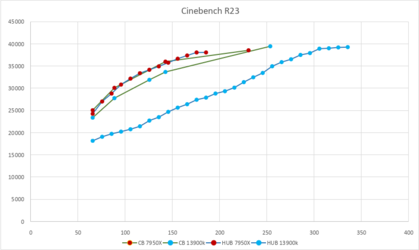- Joined
- Jul 17, 2003
OK guys. I'm in the market for a new gaming rig. Nothing fancy but building around a 3080Ti. I'm probably an AMD guy but I don't understand Intel CPUs and I'm looking for someone who knows better. Simple stuff here. I'm not looking to break the knowledge bank here.
P cores and E cores. What gives? Performance and economy? If a CPU has 6 P cores and 4 E cores, it gets listed as 10 cores. If they are different, how do I compare the performance of a "10 core" CPU to AMD or another Intel?
In terms of actual recomendations (if you have one) I mostly do Folding @ Home. Gaming is limited to Total War: Shogun 2, Civ VI and other lower tier games but FPS standards. I Fold, game a little game, stream YouTube mostly, email and web browsing.
P cores and E cores. What gives? Performance and economy? If a CPU has 6 P cores and 4 E cores, it gets listed as 10 cores. If they are different, how do I compare the performance of a "10 core" CPU to AMD or another Intel?
In terms of actual recomendations (if you have one) I mostly do Folding @ Home. Gaming is limited to Total War: Shogun 2, Civ VI and other lower tier games but FPS standards. I Fold, game a little game, stream YouTube mostly, email and web browsing.




 (Waffler: One who can't make up their mind or flips back and forth))
(Waffler: One who can't make up their mind or flips back and forth))